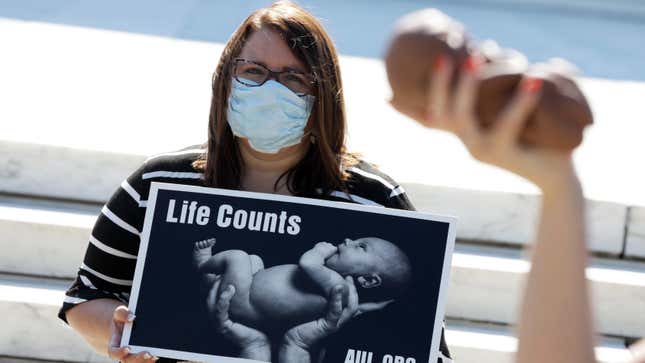

We are living during the most sustained attack on abortion rights in decades, driven by an ever-more extreme anti-abortion movement that, unleashed during the Trump years, is now emboldened by a staunchly conservative Supreme Court as well as Republican-controlled state legislatures.
It can feel like no one is paying attention, even as states pass restriction after restriction. But we should all be following what’s happening in Texas, where an extreme anti-abortion bill has already cleared the Senate and on Wednesday began making its way through the House. Governor Greg Abbott is all but guaranteed to sign the bill into law. The bill—a so-called “heartbeat bill” that would allow nearly anyone to sue abortion providers—will likely have serious repercussions far beyond the borders of the state, given the Texas anti-abortion movement’s outsized role in pioneering and implementing terribly effective abortion restrictions that are then exported elsewhere.
As Kamyon Conner, the executive director of the TEA Fund, an abortion fund that assists people in Texas, told Jezebel, “If it happens here, it will happen in other places, because Texas is a place to watch when it comes to abortion access and abortion restrictions.”
-

-

-

-

-

-

-

-

-

-

-

-

-

-

-

-

-

-

-

-

-

-

-

-

-

-

-

-

-

-

-

-

-

-

-

-

-

-

-

-








































